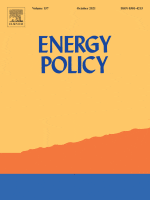A green fiscal pact: climate investment in times of budget consolidation

Budget consolidation in European Union countries should be possible within EU rules, but countries should agree a green fiscal pact to protect net-zero investment.
On space barons and global poverty

On July 21, 2021, billionaire Jeff Bezos rocketed about 65 miles above the Earth’s crust. Another billionaire, Sir Richard Branson, did the same nine days before, but his vehicle could only climb to 53 miles—some do not consider that a space flight, really.
Clearly, this was not the first time man ventured into space. However, in all earlier cases, explorers pursued a publicly defined mission and were paid from the public purse. Whereas Bezos and Branson were motived by private interest. Although Bezos thanked his company’s workers and customers for “paying for his trip,” it was, nonetheless, a privately financed venture. These two aspects, private interest and private financing, make these billionaires the world’s first space barons.
The public reception of the emerging elite space travelers club is mixed. Space enthusiasts celebrate the renewed interest in space travel, which could spark future technologies that, one day, help bring life to other planets. Critics suggest that the money used would be better spent for fighting global hunger and poverty.
There is more to both sides of this argument than meets the eye, and further inquiry is warranted. For starters, I shall rule out an otherwise interesting, but notoriously complex, dimension that gave economists a headache for decades. That is the problem of interpersonal comparison of utility. In this case, can we really compare the utility gained by Bezos from his $5.5 billion trip with that of 37 million people had the money been used to end their hunger? The question may seem rhetorical, but it is not.
The problem remains an interesting one even after Bezos, and thus the need to compare his well-being with that of others, is taken out of the picture. Let us look exclusively from the viewpoint of potential beneficiaries in the developing world. Would a transfer of cash to them be better than using the money on space tourism? Surprisingly, the answer is not necessarily affirmative.
Conspicuous consumption or an incubator for innovation?
Nobel laureate economist Angus Deaton suggests that technological innovations like antibiotics, pest control, and vaccines have been the primary drivers of humanity’s escape from destitution, including in developing countries, far surpassing development aid in impact. By this logic, space tourism could muster moral support, in addition to cash, if it also facilitates significant technological advances (in addition to conspicuous consumption).
Related Content
So far, blasting billionaires off to the edge of space has not exactly been earth-shattering, technically. Mankind had previously stepped onto the moon on six separate occasions; astronauts and cosmonauts have visited space routinely, often without such commotion; and Mars is already inhabited by robots. The NASA Voyager, built half a century ago, has become the first man-made object to exit our solar system—currently drifting at 14.2 billion miles away from us—that is about 21 hours of light-travel time from Earth (solar light reaches us in about eight minutes).
Previous research on space technology has undoubtedly improved life on earth. Modern water filtration systems, solar cells, firefighting equipment, insulin pumps, and artificial limbs are all reported to have been initiated by space research. It is too soon to see such impact from the new billionaire-driven space race. However, Bezos’ company Blue Origin is reported to hold at least 19 patents, whereas Elon Musk’s SpaceX has followed a different path: The company has not submitted any patent applications to avoid technological disclosure. Yet, there are some obvious advances including reusable rockets, which have reduced the cost of space flight dramatically.
Nonetheless, even in the presence of such innovations, there may remain significant doubts. Would for-profit innovations diffuse for public benefit as much as the publicly funded ones? The reluctance to lift intellectual property protections for COVID-19 vaccines has been a sobering test just recently.
The Samaritan’s Curse or trickle-down economics for the space age?
In some highly specialized settings, when a group tries to help those outside the group, their joint action can actually hurt the outsiders instead of helping them. This is called the “Samaritan’s Curse” and was In the case of foreign aid, a similar argument is considered when donors respond to deteriorating conditions in a country by providing more aid while the recipient country government acts strategically by leaving needs unfulfilled to qualify for further aid.
In space tourism, a Samaritan’s Curse argument can hold even without such mischievous behavior by potential recipients. Suppose the poor could benefit significantly from future innovations driven by selfish (for-profit) motives of space travelers. Then, using the space tourism money for simple cash transfers instead could be the worse option for the poor themselves. For example, in Africa, cellphone technology may have improved life more than a hypothetical transfer of equivalent size.
For such prominent technology effects, it is not enough if private space ventures muster a whole lot of innovations. The effects on the global poor will also depend on how easily those innovations can be utilized for practical purposes in daily life and how quickly those applications can diffuse to developing countries. This is an area where public policy can go a long way: Capping intellectual property protections at a reasonable level, especially when public funds are used, could help broadly. Similarly, a technology-focused assistance scheme for developing countries can complement other international aid programs. Without such discretionary actions, the benefits of space tourism could take a long time to trickle down.
The bottom line is that space tourism can hold its moral ground if it achieves life-changing technological advances. However, a public nudge is most likely needed to distribute such benefits beyond the elite space travelers club. Otherwise, humanity may jump out of the Samaritan’s Curse into the trickle-down economics for the space age.
Financial technology: A hidden path to a healthier outcome?

New financial technology (fintech) is transforming how people use money. Money, whether by its presence or absence, has an impact on health. What are, then, the health consequences flowing from fintech? The answer is even more important if access to fintech becomes a hidden gatekeeper in the ability to access new non-financial technology that can lead to better health outcomes. For example, many ride-hailing services, bike shares, and scooter shares do not take cash, so the new transportation app world won’t make it easier to get to doctor’s appointments or physical therapy for those who can’t pay through digital platforms.
On Friday, September 24, The Brookings Institution will release Klein’s new paper, “Can fintech improve health?” and he will present the paper’s key findings and recommendations. Following Klein’s presentation, there will be a conversation on the paper and the broader topic featuring Makada Henry-Nickie of Brookings, Brian Knight of the Mercatus Center, and Jennifer Tescher of the Financial Health Network.
Viewers can submit questions via email to events@brookings.edu or via Twitter using #FintechHealth
SOUTH AFRICA: Stumbling towards the 1 Nov local elections

Become a member to read the rest of this article Username or E-mail Password Remember Me Forgot Password
EUROPE: Managing the pandemic – what we are watching

Become a member to read the rest of this article
BRAZIL: Bolsonaro weaker after protests but early exit threats not in sight

Become a member to read the rest of this article
RUSSIA: Upcoming State Duma election heralds more authoritarianism

Become a member to read the rest of this article
Conditions are ideal for a new climate club

The technical and political conditions are ideal for the creation of a climate club to catalyse tougher climate action worldwide.
The Fed takes on corporate credit risk: an analysis of the efficacy of the SMCCF

by Simon Gilchrist, Bin Wei, Vivian Z. Yue and Egon ZakrajšekWe evaluate the efficacy of the Secondary Market Corporate Credit Facility (SMCCF), a program designed to stabilize the U.S. corporate bond market during the Covid-19 pandemic. The Fed announced the SMCCF on March 23, 2020, and expanded the program on April 9. Our results show that the two announcements significantly lowered credit and bid-ask spreads, the former almost entirely through a reduction in credit risk premia.
Human frictions in the transmission of economic policy

Bank of Finland Research Discussion Papers by Francesco D’Acunto, Daniel Hoang, Maritta Paloviita and Michael Weber
